Meet incredible Global Problem Solvers fighting for a better world
Continuing our showcase of inspiring girls, families, and young adults making real changes in their communities, we want to introduce you to five more families and teams. Using the expertise of their lived experience facing challenges ranging from bullying to environmental degradation, these innovators joined a global movement to build a better world – for themselves and everyone who follows. Get to know five of the incredible teams of young people and families who fight global problems by tackling the specific ways those problems affect their communities.
The Vega-Hidalgo Family & “Duckweed Vacuum Cleaner”
They developed a solution to address… local environmental health and biodiversity
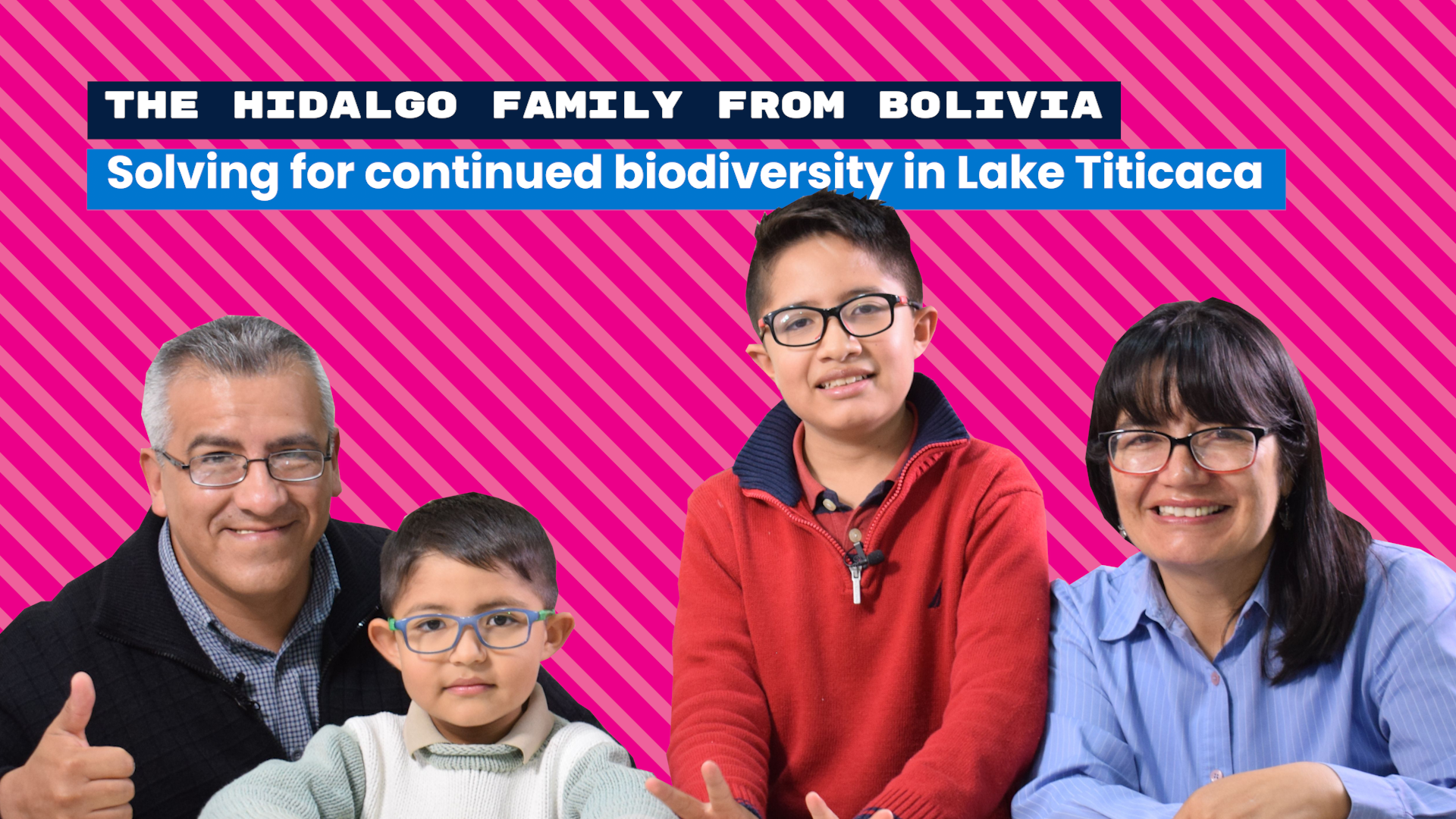
The Vega-Hidalgo Family from Bolivia created “Duckweed Vacuum Cleaner“, an AI tool that identifies and removes invasive duckweed from Lake Titicaca using a camera and an image-recognition algorithm. Duckweed is an aggressive non-native species covering 1,200 hectares of the lake’s surface, blocking sunlight from reaching other life in the lake, damaging the local ecosystem. Lake Titicaca provides clean fresh water to residents, and through hydrokinetic tools, powers local towns and villages – damage to this crucial part of their environment has long-reaching repercussions. Living so close to the lake and seeing duckweed’s impacts first-hand motivated Sandra, Francisco, Yair (age 11), and Haziel (age 6) to tap into their creativity and build a tool to help clean the polluted water and protect a unique ecosystem.
Team Robot Unicorns & “Cloud 9”
They developed a solution to address… high rates of social anxiety in their peers
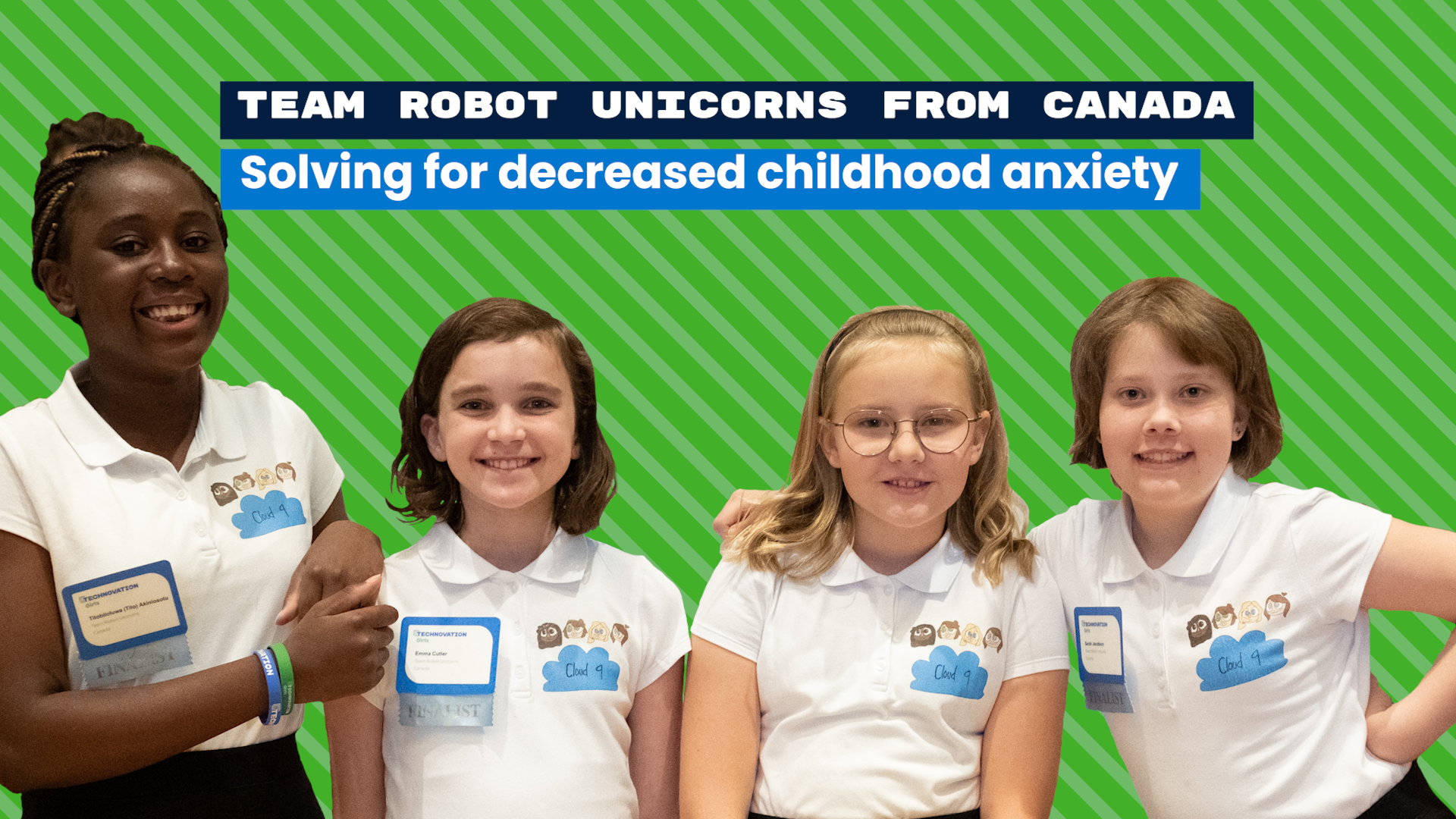
Four 11-year old girls from Calgary saw their friends struggling with social anxiety and stepped up to help. The girls of team Robot Unicorns developed “Cloud 9”
– a mobile app that helps their peers manage a complex mental health condition. The CDC reports 4.4 million children between the ages of 3 and 17 have diagnosed anxiety – and that rates of anxiety in children are increasing. Using their expertise as 11 year-olds to think about what 11 year-olds’ needs are, Tito, Emma, Claire and Sarah designed Cloud 9 to help their friends (and other kids like them) manage high levels of stress and anxiety and feel less alone.
The Rana Family & “My Drawings Speak Up”
They developed a solution to address… child abuse, including bullying and neglect
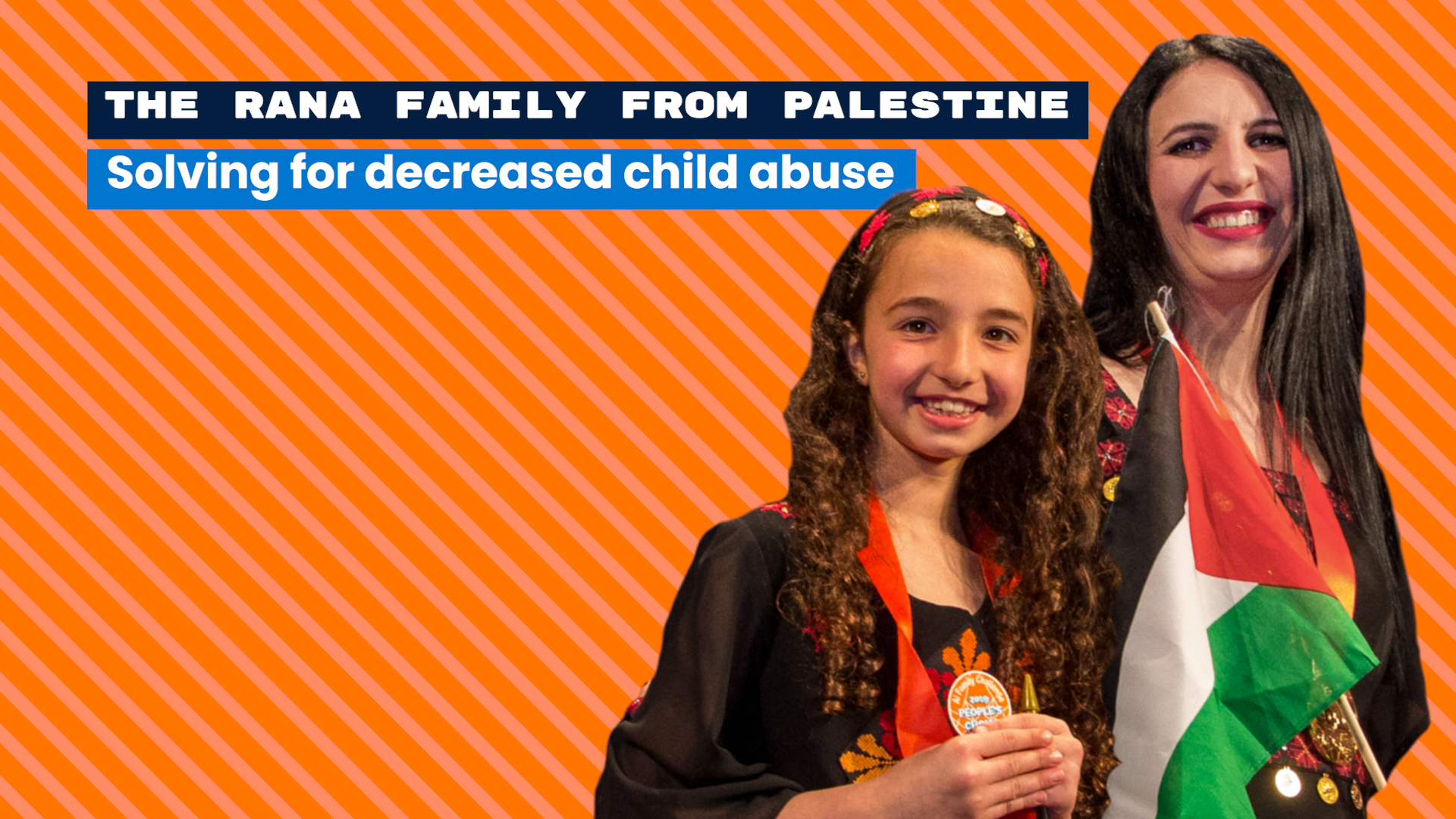
The Rana Family from Palestine created “My Drawings Speak Up”, which uses image recognition technology to analyze children’s drawings and notify an adult when a child is facing bullying and abuse. Witnessing her friends bullying another mutual friend motivated Selina (age 7) to develop a tool to help parents and care-givers recognize signs of bullying and violence in children. Together she and her mom built “My Drawings Speak Up” to empower Rana and other parents to intervene and support their children. Children around the world face bullying and other forms of emotional and physical violence – the World Health Organization estimates that up to 1 billion children have experienced violence or neglect in the past year. Selina and Rana decided to stand up for those children by building a tool to help their families address violence and neglect and look out for those who might otherwise go overlooked.
Team Cantavits & “Eedo”
They developed a solution to address…pollution due to e-waste
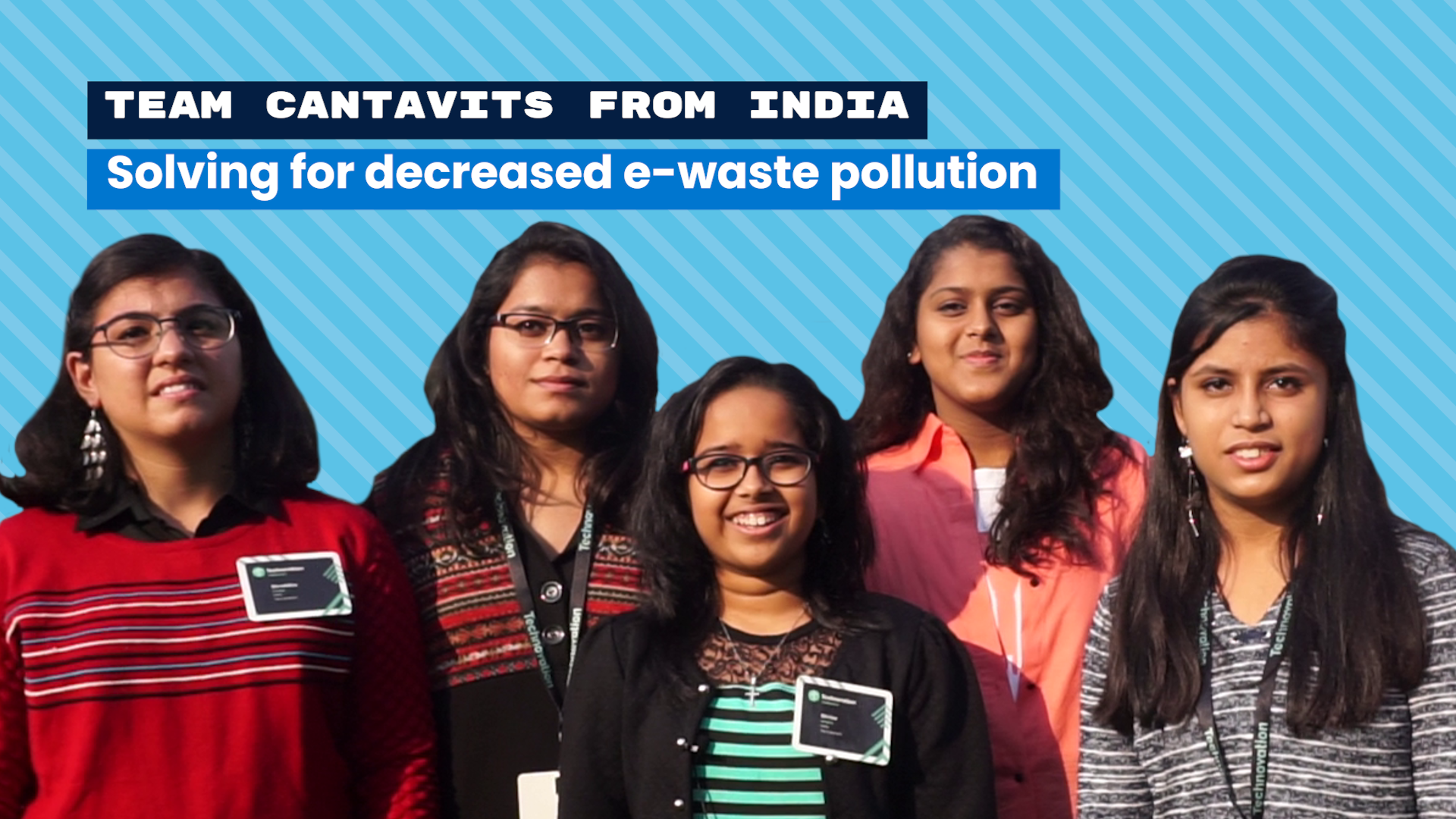
Team Cantavits from India developed Eedo, an app providing “an end-to-end connection between e-waste producers and authorized recyclers,” developed in response to the enormous (and growing) problem of electronic waste. Approximately 80% of e-waste is disposed of improperly, creating toxic fumes and polluting water. Learning about the rising amounts of e-waste and its toxic impact motivated Shriya, Kritika, Sneha, Shraddha, and Aditi to jump in and start addressing the problem. By making it easier for users to connect with authorized recyclers, Eedo moves the needle on proper waste disposal, limits the toxins leaching from e-waste, and mitigates pollution. While some of us may take our electronics for granted and assume they disappear once we throw them out, Team Cantavits (and Eedo users!) show us why we need to be more thoughtful – and help us turn that consideration into action.
Team Ecolio
They developed a solution to address… the lack of kid-focused education resources about Climate Change
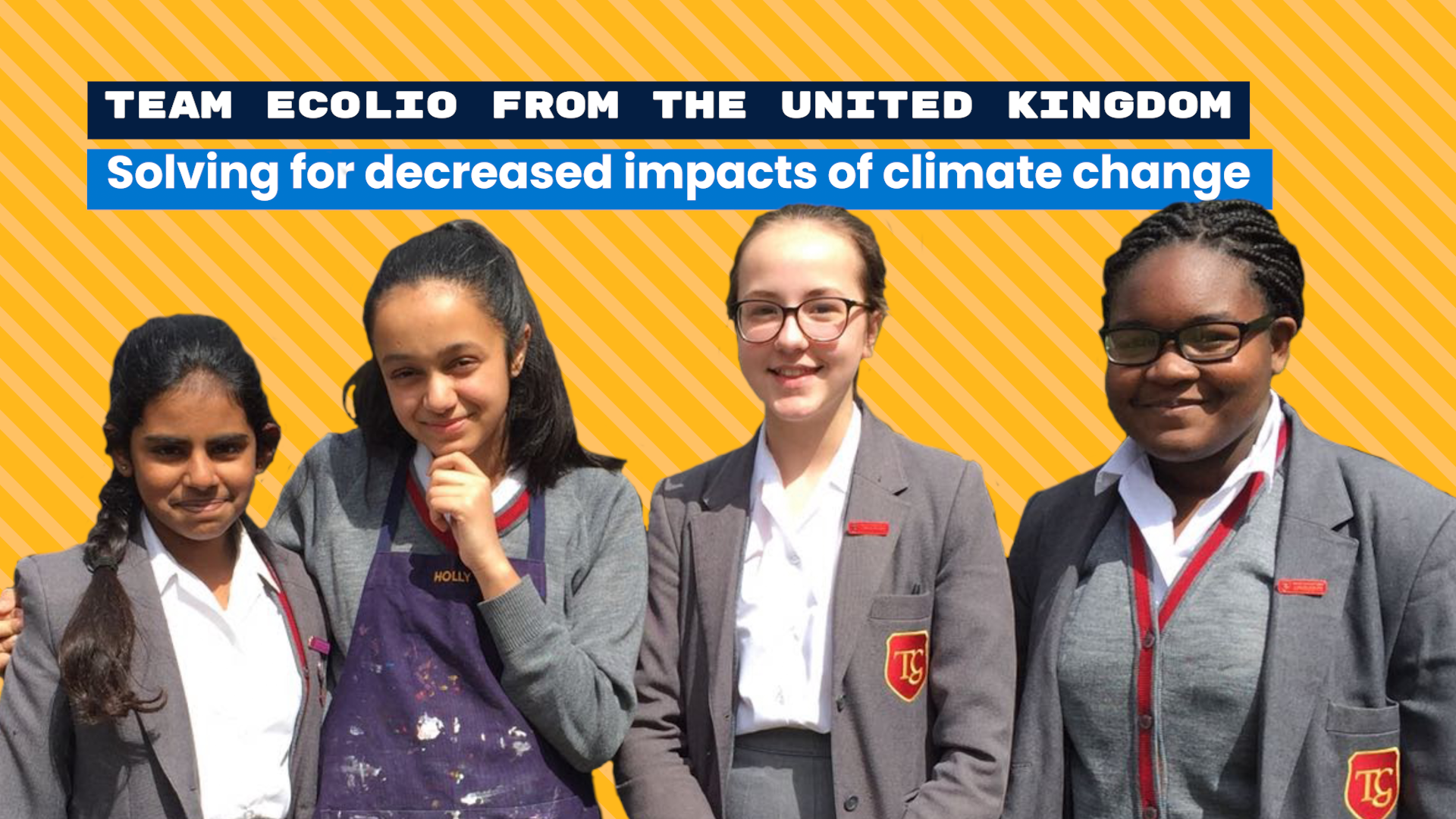
UK high school students Grace, Dilani, Hafsa & Durotimi built Ecolio, a tool to educate young people about climate change – and teach them how to decrease their own carbon footprints and impact on the environment. Focusing on young children and providing interactive games to guide them through lessons about climate change, team Ecolio honed in on one key audience and tackled the question of how to make climate change tangible to young people – a vitally important issue as 178 million people are at risk of suffering from water shortages if the world warms 1.5 degrees celsius. While the conversation around climate change intensifies, a lag remains in educational resources, particularly those targeted at children. Ecolio helps fill the gap.
What problem will you solve?
Join the Technovation Movement
Registration is open for Technovation Girls and Technovation Families. Learn how to build a technological tool that solves a community problem you care about. Or, join us as a mentor, and help guide girls and families on their learning journeys.
Donate today to help us reach more young people, their families, and their teachers around the world.

